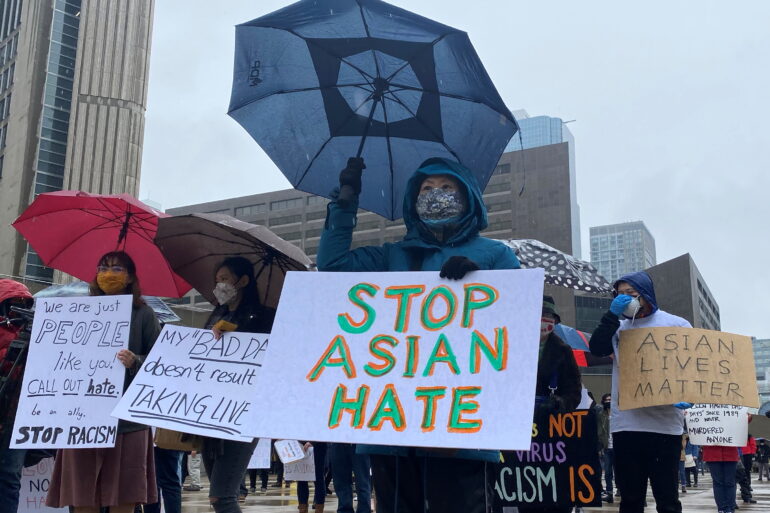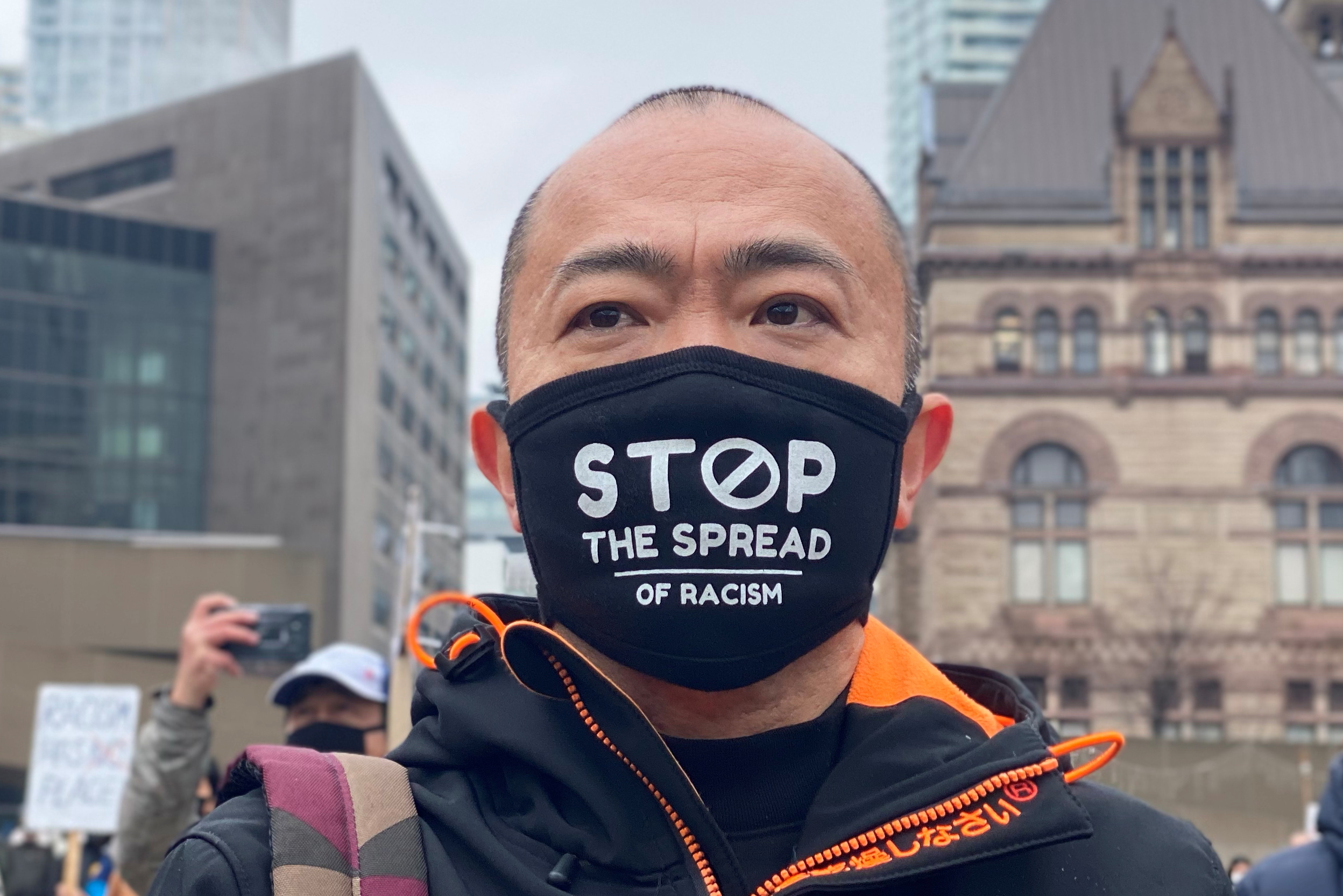
The FaceRace campaign was launched by Chinese Canadian National Council – For Social Justice (CCNC-SJ) as a call for Canadians to fight the surge in anti-Asian hate crimes across Canada during the COVID-19 pandemic.
“When COVID-19 was just creeping up we were realizing how dangerous it was going to be,” said Ryan Chan, co-ordinator and social advocate at CCNC-SJ. “We were saying that there’s going to be a backlash of anti- Asian racism, and nobody was listening.”
He said the FaceRace campaign has several components and one of them is to serve as a reminder.
“It’s basically capturing and recording stories, interviews, racist incidents, the lived experience of Asian Canadians during the COVID-19 pandemic,” Chan said.
The FaceRace campaign also provides tools for how to respond to racism.
Chan said before blaming Asian people for bringing COVID-19 to Canada there has been a long history of racism and hatred.
“It’s all kind of linked, even way back 40 years ago when Canadians were blaming Chinese people for taking up the university spots,” he said. “It’s just a pervasive theme that foreigners are causing the socio-economic problems in Canada.”
Chan said online hate accounts for a large percentage of anti-Asian discrimination.
The reality is social media companies play an active role in spreading online hate through their algorithms as they see it as engaging content for users, he said.
“It engages both people who harbour racist beliefs and people who are against this kind of content,” Chan said. “Social media companies end up promoting this kind of material showing it to as many people as they think it’s going to be profitable.”
He said his work focus is ensuring the government regulates the social media companies since right now there is no official regulation and the Criminal Code standard is too high to be applied to it.
During the pandemic, a lot of people reported incidents of racism through self-reporting tools like Fight COVID-19 Racism and Project 1907.
Fight COVID-19 Racism is the platform that allows individuals to share their experiences of racism as well as Project 1907 that collects data on incidents of racism, hate and violence experienced by the Asian diaspora in Canada.
Chan said CCNC-SJ found Asian women are more likely to become hate victims.
“You just have to look at the Atlanta attacks to understand that misogyny and anti-Asian racism often intersect when it comes to these kinds of issues,” he said.
Atlanta attacks were a series of shootings that occurred on 15 March 2021 at three spas in Georgia, Atlanta. The shootings took the lives of eight people, seven of which were women and six of those of Asian descent.
In their joint statement CCNC-SJ and the Butterfly Asian and Migrant Sex Workers Network, a Canadian organization that advocates for the rights of Asian and migrant sex workers, said Asian women working in the sex industry are often violently targeted.
“This violence is not isolated and stems from a long history of fetishizing, hypersexualizing and marginalizing Asian women,” the statement said. “Anti-migrant and anti-sex worker legislation promote and encourage hate towards Asian migrant sex workers, labelling them as undeserving and unworthy of rights and protection.”
Chan said seniors and individuals under 18 are also at risk.
“The perception is that they’re less likely to stand up for themselves and so they become easier targets for racists,” he said.
Chan said the pandemic itself isn’t a real fuel for discrimination but is more an excuse to promote hate.
“COVID is just a manifestation of ideas that Asian people have weird cultures, they stick together, they are the cause of socio-economic problems,” he said.
Online hate needs to be curbed and the government has to develop anti-Asian racism strategies on each level, Chan said.
“We need community-specific ones,” he said. “Better access to anti-racism training for frontline workers, more financial support for marginalized communities, more language support for communities who may not understand how to access government services, and funding grassroots organizations like ours.”
As for the public, it is important to educate itself, Chan said.
“If we’re able to spread the message and develop allies and be allies to other communities I think that that is the way forward,” he said.

